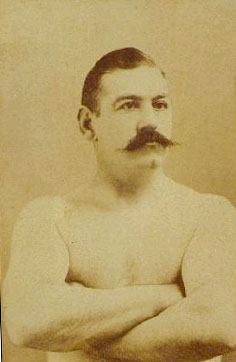Editor’s note: The following is contributed by our newest guest author, Ludus Rex.
My father was a licensed marriage and family therapist during the 90s and 00s. Almost all of his colleagues were nuts.
Most became therapists so they could Help Others the Way They Should Have Been Helped. One of the strangest and best was the man who ran a non-profit office which was always in the red; most of the clients couldn’t pay. He was an open Mariolater who lived with his mother and kept wolves and half-wolves. He was as generous as he was broken.
The only semi-sane therapist I knew (other than my father) was a man who ran the only profitable consortium in town. He went to the same church and was in the same Bible class as my parents; he was continually trying to get my father to come work with him instead of for that non-profit concern. My father refused, because he wanted to help others as his mother and sisters hadn’t been helped. Eventually the non-profit went under, and my father took an office in his friend’s business. About a year later, his friend decided to close down the shop so he could move out of state to be close to his son and grandchildren. He made a very generous offer to let the therapists who were working in the office buy out the business, but they collectively lost their minds. Accusations of betrayal; long buried resentments; open infighting. A few even raided and photocopied each others’ files. Only a few were willing to participate in the buyout, so it failed. The owner had to continue paying the rent for that entire floor of the bank building.
_________________________
A therapist is at best a surrogate for the wise old men and women of the family or clan or tribe: the comprehensive society of neighbors and kin that the West has almost entirely lost. Patients are best served by them when they can accept the therapist as an authority figure, but almost none of these therapists are fit to have any authority at all. My father was an exception, but he was loath to use his authority, having been well-tamed by the 20th Century.
Authority is required for any therapy to have any real effect. Intellectual knowledge about your emotional disturbance, why you’re failing, isn’t useful by itself to most people. Change usually doesn’t happen because you suddenly understand something about your past. It happens when you take action that sets you on a different course, but that’s hard to achieve. If it were easy, you would already have done it.
There have been some geniuses of therapy. The one we know the most about was Milton Erickson, regarded as the father of modern hypnosis (but don’t discount him for that). The most interesting work he did, and his most effective remedies, did not even involve hypnosis in the ordinary sense. He did not try to analyze a patient or understand their woes; he thought deeply about the symptom that was the reason the patient came to him, and then he assigned strange and often onerous tasks that, if followed, would help them develop different behavior patterns. Some of these assignments were so outlandish that even his own disciples were in wonder that the patients followed them. Erickson possessed a calm and implicit authority. This man, crippled as a youth by polio (he nearly died), color blind and tone deaf, even so had such a manner with people that most everyone would do whatever he ordered them to do.
There are many, many stories and case studies to be found in various overlapping collections. Several deal with adult bed wetters. Here are two examples of how he addressed the problem:
A married couple were both inveterate bed wetters. Erickson told them that, since they were going to wet the bed every night, they might as well get it over with early, so he ordered them to kneel on their bed every night after saying their prayers and urinate intentionally, then sleep in the dank wet sheets.
An obese single man always wet his bed between 1 a.m. and 2 a.m. Erickson discovered that he hated walking so much that he would get in the car and drive a single block to visit his mother. So Erickson told him that he must set his alarm for midnight, then get up, put on clothes, and walk twenty blocks away, and then back. He had to do this for one week. Thereafter, whenever he wet the bed, he had to walk those forty blocks for a month.
They obeyed, and they resolved their immediate problems.
Before he went into private practice Erickson spent years working in mental institutions. He did not try to cure the madmen; he would nudge and shove them into small new behaviors, which they were then free to choose as alternatives to whatever they had been doing. Or, he would infuriate them until they developed a new way of responding on their own. He reports studying carefully the gibberish that was the only form of communication a certain inmate would employ, until he could imitate the sounds and structure. Then he spent hours each day gibbering with the man, until at last the inmate said, “This is getting tiresome. Can’t we talk like regular folk?”
Later, in private practice, he would help schizophrenics by manipulating and bullying their families, sometimes with the idea of helping them, too, but always with the goal of opening up new possibilities for the patient himself. For one particularly sad schizo, Erickson bought him a dog that he would have to care for, but then kept the dog at his own house, so the patient would have to make the decision to leave his den to come over to Erickson’s house to take care of his dog.
No one has been able to replicate the methods of Milton Erickson, if they can even be described as methods. The NLP (Neuro-Linguistic Programming) line of therapy tried to systematize it, arguably with some success, but its founders ended up as a cokehead implicated in a murder and a back-to-nature weirdo. Erickson’s more respectful disciples have done great work in preserving and publishing that great man’s work, but admit themselves that they do not have the practical success in helping men and women and children that their mentor did.
It is a sign of our “unstructured, destructed, destroyed society” that the work of Milton Erickson seems magical, or that it is even needed. Who mourns for the autist and retard and schizo? Where are their grandfathers and great uncles and chiefs? Why are their mothers bitter and confused? Every child should be embedded in a family, every family embedded in a web of other families, every web a cheerful substrate in a small, human-scaled society. Atomization allows, probably ensures, that a significant number of men and women will have grown up isolated and in pain among thorns.










5
The first I heard a therapist refer to “my therapist” I laughed out loud. It was at a foster parent conference, and I was new enough (and sane enough) that I had never met a therapist before. Everyone in the audience looked at me like I was the one who was nuts.
It was much later that I learned that many therapists have spent their own lives in therapy.
I have oft heard it said that “psychiatrist” was as much a diagnosis as a profession. The arrogance needed to think you can fix the broken minds of others is staggering. Better go to a good priest.